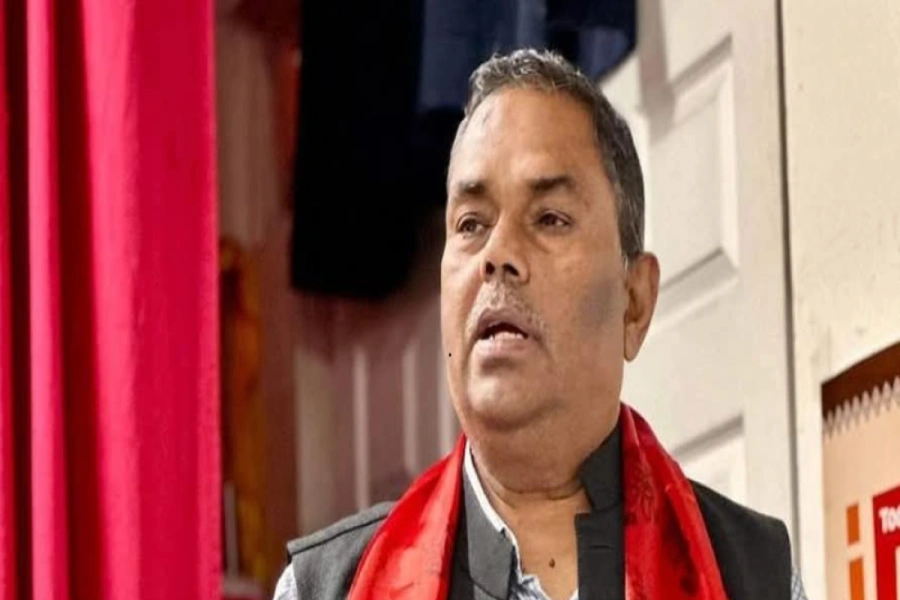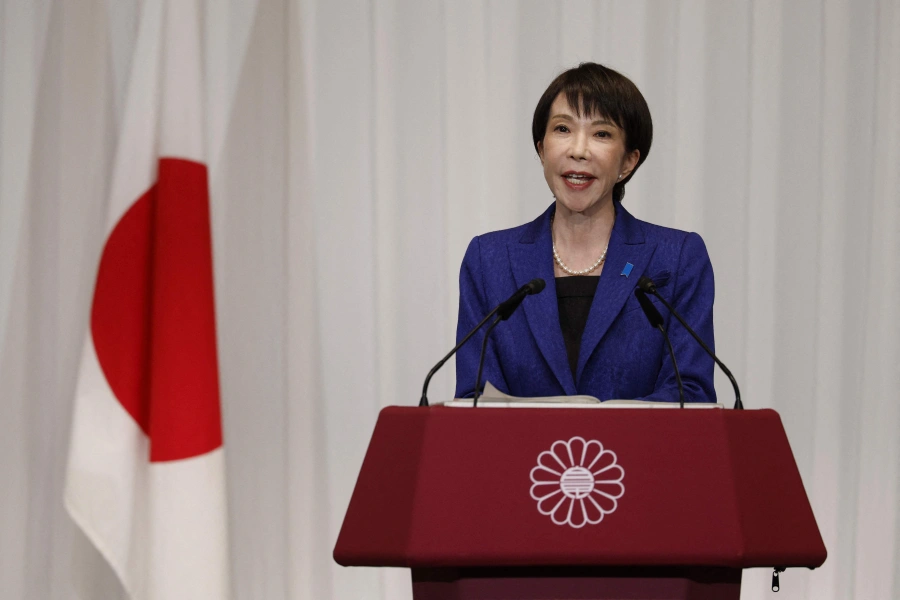Raut’s greatest victory has come not from his previous defiance as a secessionist leader but from his recent peace pact with the government
What CK Raut couldn’t achieve with years of protests and agitation, he secured with the stroke of a pen.
Earlier this month, the government signed a peace pact with the Alliance for Independent Madhesh (AIM), a largely peaceful but secessionist movement that seeks to break out an independent Madhes from Nepal. Raut, the coordinator for AIM, signed the peace pact.
In the peace pact, AIM agreed to respect the sovereignty and territorial integrity of Nepal. It also agreed to “follow democratic means to address the dissatisfaction of people.”
The government had never accepted AIM as a legitimate political force. Raut was in and out of prison regularly. An AIM’s activist died while in prison.
Following the peace pact, many newspapers reported that Raut may have signed the agreement because he would otherwise have faced a long period in jail. Such reports have not been adequately validated. Nevertheless, for a government that is increasingly projecting a public image of a tough-dominant force ready to contain any popular or fringe protests, Raut’s submission represented an important symbolic victory without even a single bullet being fired.
Ironically, Raut’s greatest victory has come not from his previous defiance as a secessionist leader but from his peace pact with the government. It will be a victory not just for disaffected Madhesis but for all of Nepal wanting to safeguard their future.
R for ‘referendum’
The government was intensely criticized, including from within its own party, for signing a peace pact that seemed to suggest a referendum could be used to address the dissatisfaction of people. Although AIM acknowledged the sovereignty and territorial integrity of Nepal in the opening clause of the agreement, the second clause allowed for “democratic means” to address public discontent.
Critics charged that “democratic means” in the second clause could be interpreted as a referendum. They went further to argue that the second clause technically meant that a referendum could be used to demand secession.
CJ Raut faces challenges ahead to restore public trust

Government quickly and repeatedly clarified that the controversial Clause 2 was not an acknowledgment for a referendum. Instead, the government argued, the peace pact should be applauded for successfully bringing a secessionist movement into mainstream politics.
Since the peace pact, AIM has announced it will evolve into a registered party and become active in mainstream politics.
Even though government has unambiguously shut the door on referendum, the lasting impact from these events is that the ‘R’ word has now been spoken.
This is Raut’s greatest contribution to contemporary Nepali politics thus far. With the stroke of a pen, whether he intended it or not, Raut has placed ‘Referendum’ firmly within the national lexicon. ‘Referendum’ is now in the public consciousness. Whether from an individual or an organization’s point of view, “Referendum” is the new mainstream idea.
And with that, Nepali politics will never be the same again.
Raut’s beneficiary
Although Kamal Thapa, Chairman of Rastriya Prajatantra Party (RPP), doesn’t know it yet, he is the first and direct beneficiary of Raut’s victory.
Thapa advocates for the restoration of a constitutional monarchy and a Hindu state. He has modeled his party singularly on this issue and recently launched a nationwide east-to-west campaign to gather support.
Thapa’s call for a return to a constitutional monarchy and a Hindu state violates the core principles of Nepal’s constitution: “State of Nepal - Nepal is an independent, indivisible, sovereign, secular, inclusive, democratic, socialism-oriented, federal democratic republican state.” (Article 4.1)
Notice that ‘indivisible’, which Raut was accused of having violated, along with ‘secular’ and ‘republican’ which Thapa seeks to challenge, all appears in the same sentence defining the state of Nepal.
Why is it that Raut was imprisoned for challenging the constitution while Thapa is not? Both are defying the core principles of the constitution.
Public acceptability
There are two reasons why Thapa remains free to advocate his anti-constitutional views.
First, Thapa’s call for a Hindu state with a constitutional monarchy is publicly acceptable. The idea resonates with a portion of the population. For all practical purposes, Nepal is a Hindu state. The President and Prime Minister openly participate in Hindu rituals as part of official government functions. Hindu gods are called to bless infrastructure projects, with all ceremonies for the laying of foundation stones invariably involving a Hindu puja.
Thus, because Thapa’s call for a Hindu state and constitutional monarchy are both publicly acceptable, he remains a free man despite openly advocating against the core principles of the constitution. Raut, on the other hand, did not hold a view that was publicly acceptable.
A constitution that imprisons a person for a view that is not publicly acceptable and lets another person free for a view that is publicly acceptable, though both are advocating against the constitution, cannot be a constitution that is fair.
Second, the constitution of Nepal does allow for a referendum with “respect to any matter of national importance.” Many, including Thapa, have interpreted this to mean that certain characters of Nepal’s constitution, like secularism and republicanism, are contestable while others, such as sovereignty or territorial integrity, are not contestable.
The constitution never envisioned this hierarchy of importance. It cannot be that secularism and republicanism are more important than say the right to citizenship, free speech or political participation. It cannot be that some core principles are contestable, whereas others are not; certain rights cannot be inalienable while others can.
Whatever the reason, the drafters of Nepal’s constitution in their wisdom inserted a clause allowing for a referendum with no limitation that it should apply to some issues and not to others. Raut’s case has simply put a spotlight on referendum as one of our constitutional rights.
The final safeguard
In just a few short years, Nepal’s constitution has been buffeted by challenges on many fronts. There was Raut. While he may have joined mainstream politics, it is not clear that he will not spawn a new generation of secessionist leaders. There is Thapa, who looks poised to intensify his movement. The Chand-led Maoist movement has adopted the path of an armed insurgency.
The monopoly of the state in all aspects—political, economic and social—has deepened. Institutions that could serve as the counter-force to executive authority are crumbling. The independence of judiciary has been tarnished. Public credibility in the institution is broken.
The military has capitulated. Its activities as civil contractor to the government have tarnished its image as the final force that could uphold Nepal’s sovereignty.
Faith in the institution of government is declining. Corruption is pervasive. Power and money rule. Impunity is for sale. The network of patronage has become the engine of growth. The moral decay that is rapidly eroding the political, social and economic fabric of Nepal is visible to anyone with the courage to look at it.
Against this decay, a referendum—the power to change course—is the final safeguard to Nepal’s constitution and our future. It places power directly in the hands of people, empowering us to correct our course. When all else has failed, the option for a referendum will save us.
For putting the spotlight on referendum, history will judge Raut not as having threatened to break up Nepal but instead as having saved Nepal.
bishal_thapa@hotmail.com











-1200x560_20220222141922.jpg)


























